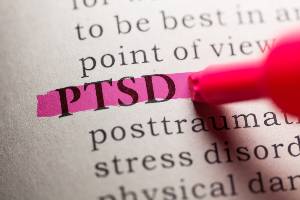What Should I Do After a Crash? Exchange Information or Call the Police?

Some crash victims do not want to make a big thing out of a crash. They would prefer to exchange information with the other driver and leave. They figure they can deal with the aftermath of the collision on their own without calling the police.
Below, the experienced Minneapolis auto accident lawyers at TSR Injury Law talk about the steps you should take after a collision. We also explain why it is usually a good idea to call the police after a crash, even if you think you only have minor injuries.
If you have questions about what to do after being involved in a car crash, give us a call to set up a free consultation. We have helped many Minnesota crash victims secure the compensation they needed for a car crash injury.
TSR Injury Law. Experienced Lawyers. Proven Results. Call (612) TSR-TIME.
Why Only Exchanging Information May Be a Bad Idea
You could run into trouble if you do not call the police after a crash. Here are a few of the reasons why:
How Do You Know the Other Driver Is Being Honest?
How do you know the other driver is giving you accurate information, including his or her:
- Real name
- Phone number
- insurance information
Even if he or she shows you a valid driver’s license and insurance card and sends you a text message so you have the phone number in your phone, he or she may not return your calls.
People often forget or put off updating their driver’s license. The address on it may no longer be correct.
Sometimes at-fault drivers rush through exchanging information. They may say they have an appointment to get to or some other obligation.
They may seem nice and like someone who will take responsibility for their actions. The fact is you do not know them and there is no way to know if you can trust them.
You May Not Be Able To Seek Compensation Without a Police Report
If you call the insurance company, they may deny liability. They may claim you do not have a case because you did not call the police.
Even though Minnesota is a no-fault state, it is important to have a police report from the scene of the crash because:
- Some insurance policies require a police report to set up a claim.
- The at fault party may change their story and when you try to make a liability claim, it is denied.
It Can Be Harder To Prove Fault
If you do not have a police report, it may be difficult to establish fault. If the driver leaves the scene, you will not have pictures of the damage to his or her vehicle. The insurance company may say the crash could not have been that big of a deal because you did not call the police right away.
Your Injuries May Be More Severe Than You Realize
It may take a few hours or days for symptoms to develop, and by that point you could be dealing with a significant amount of pain.
If you do not call the police or seek treatment right away, you are giving the insurance company room to claim your injuries were caused by something else.
Linking Your Injuries and the Collision
It is important to establish a strong connection between your injuries and the accident. You can do this by calling the police right away, seeking treatment, and contacting a licensed attorney to help review your options. When victims treat a crash as a serious situation, it becomes more difficult for insurance companies to say otherwise.
When Are You Required to Call the Police After a Minnesota Crash? (add FAQ schema)
Leaving the scene of a crash without calling the police may be illegal, depending on the details of the crash. Under state law, those involved in collisions that result in bodily injury or death must provide notice to:
- Local police if the crash happened within a municipality
- State patrol if the crash happened on a highway
- Office of the sheriff of the county
What Are the Penalties for Not Reporting a Crash in Minnesota?
Minnesota imposes severe penalties on drivers who fail to report a crash that results in injury or death:
- In case of a fatality:
- If the collision results in the death of another person, and you, as the driver, fail to report it, you are facing serious consequences.
- The law considers this a felony.
- The penalties can include imprisonment for up to three years, a fine of up to $5,000, or possibly both.
- In case of great bodily harm:
- If the accident results in “great bodily harm” (a term legally defined in section 609.02, subdivision 8), not reporting it is also a felony.
- Penalties include imprisonment for up to two years, a fine of up to $4,000, or both.
- In case of substantial bodily harm:
- For accidents causing “substantial bodily harm” (as defined in section 609.02, subdivision 7a), the penalties are slightly less severe but still significant.
- You could face imprisonment for up to 364 days, a fine of up to $3,000, or both.
- Additionally, if the collision results in any kind of bodily harm and you fail to report it, you may be sentenced to imprisonment for up to 364 days, or a fine of up to $3,000, or both.
What if it Was Just a Fender Bender?
You might think it is unnecessary to call the police after a fender bender where there are no injuries and only minor damage. However, there are compelling reasons to consider making that call.
A Police Report Provides an Official Account of What Happened
This can be crucial if there are disputes about what happened, and there often are. Insurance companies may be less likely to believe a crash occurred if there is no report.
Minor Damage May Be Worse Than You First Think
What appeared to you as minor damage initially may turn out to be more significant upon closer inspection. Having a police report can simplify the process of claiming insurance coverage for such hidden damages.
Police Reports May Help Resolve Disputes
In cases where the other party seems uncooperative or there is a disagreement about the events, police intervention can help to document the scene.
Ultimately, while it might be legally permissible to skip calling the police for very minor incidents, doing so provides a layer of protection and documentation that can be valuable in the long run, especially in dealing with insurance matters and potential legal disputes.
6 Steps To Take After a Collision
Here is a straightforward guide that outlines the steps you should take after being involved in a crash. These steps are about protecting your health and your legal rights:
- Move your vehicle away from traffic – This is essential for the safety of everyone in your vehicle. You do not want to get hit by an approaching car, which could cause additional injuries. Turn on your hazard lights and, if you have them, set up road flares behind your vehicle.
- Check yourself and your passengers for injuries – You may be able to provide first aid to help stabilize certain injuries. You also need to know if someone has a life-threatening injury. When you call 9-1-1, you can tell the operator and they may be able to give you tips on saving the person’s life while you wait for the ambulance to arrive. Remaining calm is critical, as it will help you manage the situation effectively.
- Report the accident – Immediately call 9-1-1. Provide detailed and factual information to the police, offer your driver’s license and insurance details and get the officers’ names and badge numbers. If police cannot reach the site, you can file a report at a local police station.
- Document the scene – Take out your smartphone and take pictures of your vehicle and the other driver’s vehicle. It is helpful to get pictures from different angles. You can also take pictures of street signs, crash debris, visible injuries and anything else that may help insurance companies and lawyers understand what happened.
- Exchange information – Exchange contact and insurance details with the other driver. If there are witnesses, be sure to request their contact information too. This step is critical, whether you call the police or not.
- Seek medical attention – Even if you feel fine, some injuries manifest later. A medical professional can assess and document any injuries, which is crucial for insurance and legal purposes.
Following these steps can help protect your interests and ensure a smoother process in dealing with the aftermath of a car accident. Remember, your actions immediately following an accident are critical in safeguarding your rights and well-being.
Contact TSR Injury Law Today To Schedule Your Free Legal Consultation
Give us a call today to learn more about how our experienced attorneys may be able to help you. We have assisted many car crash victims over the years, securing millions in compensation through settlements and courtroom verdicts.
There is no risk in contacting us for help because there are no upfront fees for our services. We do not get paid unless our clients get paid, which means there are no fees while we work on your case.
Check out our client testimonials page to see what our past clients had to say about their experience working with us.
TSR Injury Law. We are here to assist you. (612) TSR-TIME


 Most drivers do not think about what they would do after a crash. They either do not want to think about a crash or they think they will simply figure out what to do if a crash happens.
Most drivers do not think about what they would do after a crash. They either do not want to think about a crash or they think they will simply figure out what to do if a crash happens. Personal injury crashes can be scary experiences that leave victims emotionally scarred. In some cases, victims develop post-traumatic stress disorder, which can seriously interfere with their life.
Personal injury crashes can be scary experiences that leave victims emotionally scarred. In some cases, victims develop post-traumatic stress disorder, which can seriously interfere with their life. One of the main reasons car crash victims hire attorneys is so they can manage the legal process. That way, crash victims can focus on their treatment and know their claims are being managed properly.
One of the main reasons car crash victims hire attorneys is so they can manage the legal process. That way, crash victims can focus on their treatment and know their claims are being managed properly.